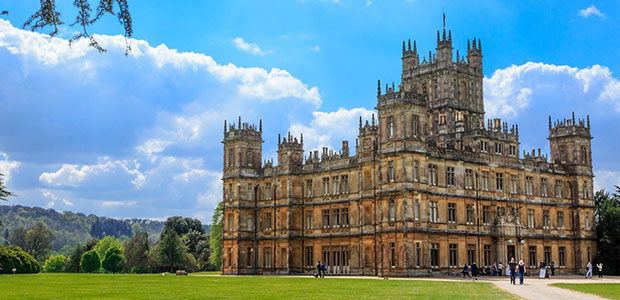We have to ensure clients have masks, that there’s hand sanitiser, washing facilities and clear visors for guides, Institute of Tourist Guiding President Marilyn Collis tells Katie McGonagle.
Click here to download and save as a PDF.
Q. We often see Blue Badge guides at tourist sites in the UK, so tell us how your organisation brings them together.
A. We are the professional body for tourist guides in England, Jersey and Northern Ireland and we were formed in 2002 as a means of saving the Blue Badge qualification. Our role is to accredit courses, to set the examinations and award qualifications.
We have three different qualifications – Blue Badge, which covers a region such as the southwest or Heart of England; Green Badge, which is for a specific area such as the City of London or Chester; and White Badge, which is for a site, for instance Canterbury Cathedral, York Minster or Hampton Court. We have 1,800 members and there are more than 5,000 qualified guides working across the country.
Q. How have the tour guides you work with coped over the past few months?
A. We mainly deal with incoming visitors so immediately our market was completely wiped out. Our members are self-employed and although the government has offered certain assistance, there are some people who don’t fall into that category. For example, some who haven’t been self-employed long enough, some who earn over the threshold and some who had set up as limited companies on the advice of their accountants have also fallen through the net. A lot have created virtual tours – as tasters, because nothing beats the real thing. In the London region, 60 of our Blue Badge guides have done live broadcasts which have resulted in 140,000 views, likes and shares.

Q. Now that domestic tourism is restarting, how are guides adapting their tours to fit new, Covid-19 requirements?
A. We have created guidelines and brought out a Covid-19 tourist guides’ code of conduct, which very clearly states to members the kind of facilities they must be aware of. We have looked at audio guide systems such as Whisper and Vox. Normally you would speak into one microphone pack and people would have headphones, but these link up with your clients’ phones, which is really good because you won’t have to speak too loudly.
We’re also going to have to ensure that clients have masks, that there’s hand sanitiser, washing facilities and perhaps also clear visors for guides because it’s difficult to talk through a mask and be clearly heard. We need to be aware of other people, which is not always easy in narrow streets where one walks, but guides will check the route and make sure that where they stop to talk to people is suitably large for everybody to keep that social distancing. We’ve signed up to VisitBritain’s We’re Good to Go programme, and all of our members have been encouraged to register as yet another stamp of approval.
Q. Which areas or types of travel are you expecting to be popular this summer?
A. Outside cities – for people who want peace and quiet and not so many crowds – there could be a good market for walking guides. I think that will grow quicker. Some sites are opening up this month on various dates, but they’re not allowing guiding. We have good relationships with many sites and we hope that they will realise the benefit of having us for their visitors, although there’s still a limitation on how many we can have in a group.
The sites have got to lead the way to encourage people to want to go to them. To go to St Paul’s Cathedral and stay for a service but not be able to sing is very difficult to accept, because that’s one of the main highlights, even to hear the choir in that wonderful space. So it will be a different experience, but that’s even more reason to book a professionally qualified guide to highlight the extras you might not otherwise be aware of.

Marilyn’s top tip
Filming locations are always popular with visitors, such as Cornwall with Poldark and Highclere Castle from Downton Abbey – we want to shine a light on everything we have around our wonderful country.





